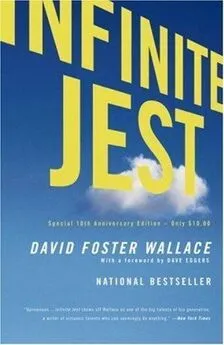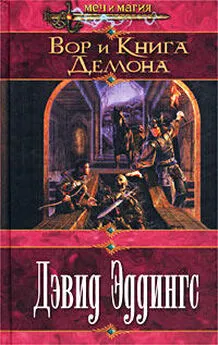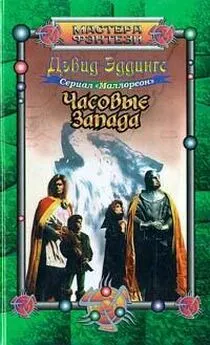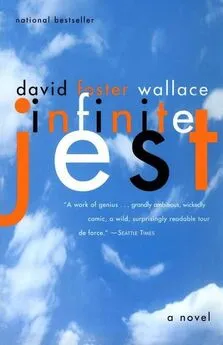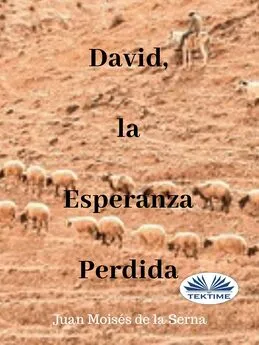David Wallace - Infinite jest
- Название:Infinite jest
- Автор:
- Жанр:
- Издательство:Back Bay Books
- Год:2006
- ISBN:нет данных
- Рейтинг:
- Избранное:Добавить в избранное
-
Отзывы:
-
Ваша оценка:
David Wallace - Infinite jest краткое содержание
Infinite Jest is the name of a movie said to be so entertaining that anyone who watches it loses all desire to do anything but watch. People die happily, viewing it in endless repetition. The novel Infinite Jest is the story of this addictive entertainment, and in particular how it affects a Boston halfway house for recovering addicts and a nearby tennis academy, whose students have many budding addictions of their own. As the novel unfolds, various individuals, organisations, and governments vie to obtain the master copy of Infinite Jest for their own ends, and the denizens of the tennis school and halfway house are caught up in increasingly desperate efforts to control the movie — as is a cast including burglars, transvestite muggers, scam artists, medical professionals, pro football stars, bookies, drug addicts both active and recovering, film students, political assassins, and one of the most endearingly messed-up families ever captured in a novel.
On this outrageous frame hangs an exploration of essential questions about what entertainment is, and why it has come to so dominate our lives; about how our desire for entertainment interacts with our need to connect with other humans; and about what the pleasures we choose say about who we are. Equal parts philosophical quest and screwball comedy, Infinite Jest bends every rule of fiction without sacrificing for a moment its own entertainment value. The huge cast and multilevel narrative serve a story that accelerates to a breathtaking, heartbreaking, unfogettable conclusion. It is an exuberant, uniquely American exploration of the passions that make us human and one of those rare books that renew the very idea of what a novel can do.
Infinite jest - читать онлайн бесплатно полную версию (весь текст целиком)
Интервал:
Закладка:
‘But I don’t think I even really noticed it until we began to discuss it,’ I said. I looked at my mother. ‘I don’t think it bothers me,’ I said. ‘Actually, I think I kind of like it. I think I’ve gradually gotten so used to it that it’s become almost comforting. At this juncture,’ I said.
My mother looked at me.
‘I’m not complaining about it,’ I said. The discussion just made me think of it.’
‘Oh, we hear your bed, don’t you worry,’ my father said. He was still trying to squat, which drew his corset and the hem of his tunic up and allowed the top of his bottom’s crack to appear above the the waist of his white pants. He shifted slightly to point up at the master bedroom’s ceiling. ‘You so much as turn over in bed up there? We hear it down here.’ He took one steel side of the rectangle and shook the frame vigorously, sending up a shroud of dust. The bed frame seemed to weigh next to nothing under his hands. My mother made a mustache of her finger to hold back a sneeze.
He shook the frame again. ‘But it doesn’t aggravate us the way this ro-dential son of a whore right here does.’
I remarked that I didn’t think I’d ever once heard their bed squeak before, from upstairs. My father twisted his head around to try to look up at me as I stood there behind him. But I said I’d definitely heard and could confirm the presence of a squeak when he’d pressed on the mattress, and could verify that the squeak was no one’s imagination.
My father held a hand up to signal me to please stop talking. He remained in a squat, rocking slightly on the balls of his feet, using the rolling frame to keep his balance. The flesh of the top of his bottom and crack-area protruded over the waist of his pants. There were also deep red folds in the back of his neck, below the blunt cut of the wig, because he was looking up and over at my mother, who was resting her tail bone on the sill of the window, still holding her shallow ashtray.
‘Maybe you’d like to go get the vacuum,’ he said. My mother put the ashtray down on the sill and exited the master bedroom, passing between me and the dresser piled with bedding. ‘If you can … if you can remember where it is!’ my father called after her.
I could hear my mother trying to get past the King-Size mattress sagging diagonally across the hall.
My father was rocking more violently on the balls of his feet, and now the rocking had the sort of rolling, side-to-side quality of a ship in high seas. He came very close to losing his balance as he leaned to his right to get a handkerchief from his hip pocket and began using it to reach out and flick dust off something at one corner of the bed frame. After a moment he pointed down next to a caster.
‘Bolt,’ he said, pointing at the side of a caster. ‘Right there’s a bolt.’ I leaned in over him. Drops of my father’s perspiration made small dark coins in the dust of the frame. There was nothing but smooth lightweight black steel surface where he was pointing, but just to the left of where he was pointing I could see what might have been a bolt, a little stalactite of clotted dust hanging from some slight protrusion. My father’s hands were broad and his fingers blunt. Another possible bolt lay several inches to the right of where he pointed. His finger trembled badly, and I believe the trembling might have been from the muscular strain on his bad knees, trying to hold so much new weight in a squat for an extended period. I heard the telephone ring twice. There had been an extended silence, with my father pointing at neither protrusion and me trying to lean in over him.
Then, still squatting on the balls of his feet, my father placed both hands on the side of the frame and leaned out over the side into the rectangle of dust inside the frame and had what at first sounded like a bad coughing fit. His hunched back and rising bottom kept me from watching him. I remember deciding that the reason the frame was not rolling under his hands’ pressure was that my father had so much of his weight on it, and that maybe my father’s nervous system’s response to heavy dust was a cough-signal instead of a sneeze-signal. It was the wet sound of material hitting the dust inside the rectangle, plus the rising odor, that signified to me that, rather than coughing, my father had been taken ill. The spasms involved made his back rise and fall and his bottom tremble under his white commercial slacks. It was not too uncommon for my father to be taken ill shortly after coming home from work to relax, but now he seemed to have been taken really ill. To give him some privacy, I went around the frame to the side of the frame closest to the window where there was direct light and less odor and examined another of the frame’s casters. My father was whispering to himself in brief expletive phrases between the spasms of his illness. I squatted easily and rubbed dust from a small area of the frame and wiped the dust on the carpet by my feet. There was a small carriage-head bolt on either side of the plating that attached the caster to the bed frame. I knelt and felt one of the bolts. Its round smooth head made it impossible either to tighten or loosen. Putting my cheek to the carpet and examining the bottom of the little horizontal shelf welded to the frame’s side, I observed that the bolt seemed threaded tightly and completely through its hole, and I decided it was doubtful that any of the casters’ platings’ bolts were producing the sounds that reminded my father of rodents.
Just at this time, I remember, there was a loud cracking sound and my area of the frame jumped violently as my father’s illness caused him to faint and he lost his balance and pitched forward and lay prone and asleep over his side of the bed frame, which as I rolled away from the frame and rose to my knees I saw was either broken or very badly bent. My father lay facedown in the mixture of the rectangle’s thick dust and the material he’d brought up from his upset stomach. The dust his collapse raised was very thick, and as the new dust rose and spread it attenuated the master bedroom’s daylight as decisively as if a cloud had moved over the sun in the window. My father’s professional wig had detached and lay scalp-up in the mixture of dust and stomach material. The stomach material appeared to be mostly gastric blood until I recalled the tomato juice my father had been drinking. He lay face-down, with his bottom high in the air, over the side of the bed frame, which his weight had broken in half. This was how I accounted for the loud cracking sound.
I stood out of the way of the dust and the window’s dusty light, feeling along the line of my jaw and examining my prone father from a distance. I remember that his breathing was regular and wet, and that the dust mixture bubbled somewhat. It was then that it occurred to me that when I’d been supporting the bed’s raised mattress with my chest and face preparatory to its removal from the room, the dihedral triangle I’d imagined the mattress forming with the box spring and my body had not in fact even been a closed figure: the box spring and the floor I had stood on did not constitute a continuous plane.
Then I could hear my mother trying to get the heavy canister vacuum cleaner past the angled Simmons Beauty Rest in the hall, and I went to help her. My father’s legs were stretched out across the clean blue carpet between his side of the frame and my mother’s white dresser. His feet’s boots were at a pigeon-toed angle, and his bottom’s crack all the way down to the anus itself was now visible because the force of his fall had pulled his white slacks down even farther. I stepped carefully between his legs.
‘Excuse me,’ I said.
I was able to help my mother by telling her to detach the vacuum cleaner’s attachments and hand them one at a time to me over the width of the slumped mattress, where I held them. The vacuum cleaner was manufactured by Regina, and its canister, which contained the engine, bag, and evacuating fan, was very heavy. I reassembled the vacuum and held it while my mother made her way back across the mattress, then handed the vacuum cleaner back to her, flattening myself against the wall to let her pass by on her way into the master bedroom.
‘Thanks,’ my mother said as she passed.
I stood there by the slumped mattress for several moments of a silence so complete that I could hear the street’s lawnmowers all the way out in the hall, then heard the sound of my mother pulling out the vacuum cleaner’s retractable cord and plugging it into the same bedside outlet the steel reading lamps were attached to.
I made my way over the angled mattress and quickly down the hall, made a sharp right at the entrance to the kitchen, crossed the foyer to the staircase, and ran up to my room, taking several stairs at a time, hurrying to get some distance between myself and the vacuum cleaner, because the sound of vacuuming has always frightened me in the same irrational way it seemed a bed’s squeak frightened my father.
I ran upstairs and pivoted left at the upstairs landing and went into my room. In my room was my bed. It was narrow, a twin bed, with a headboard of wood and frame and slats of wood. I didn’t know where it had come from, originally. The frame held the narrow box spring and mattress much higher off the floor than my parents’ bed. It was an old-fashioned bed, so high off the floor that you had to put one knee up on the mattress and clamber up into it, or else jump.
That is what I did. For the first time since I had become taller than my parents, I took several running strides in from the doorway, past my shelves’ collection of prisms and lenses and tennis trophies and my scale-model magneto, past my bookcase, the wall’s still-posters from Powell’s Peeping Tom and the closet door and my bedside’s high-intensity standing lamp, and jumped, doing a full swan dive up onto my bed. I landed with my weight on my chest with my arms and legs out from my body on the indigo comforter on my bed, squashing my tie and bending my glasses’ temples slightly. I was trying to make my bed produce a loud squeak, which in the case of my bed I knew was caused by any lateral friction between the wooden slats and the frame’s interior’s shelf-like slat-support.
But in the course of the leap and the dive, my overlong arm hit the heavy iron pole of the high-intensity standing lamp that stood next to the bed. The lamp teetered violently and began to fall over sideways, away from the bed. It fell with a kind of majestic slowness, resembling a felled tree. As the lamp fell, its heavy iron pole struck the brass knob on the door to my closet, shearing the knob off completely. The round knob and half its interior hex bolt fell off and hit my room’s wooden floor with a loud noise and began then to roll around in a remarkable way, the sheared end of the hex bolt stationary and the round knob, rolling on its circumference, circling it in a spherical orbit, describing two perfectly circular motions on two distinct axes, a non-Euclidian figure on a planar surface, i.e., a cycloid on a sphere:
x,v


x,y
The closest conventional analogue I could derive for this figure was a cycloid, L’Hôpital’s solution to Bernoulli’s famous Brachistochrone Problem, the curve traced by a fixed point on the circumference of a circle rolling along a continuous plane. But since here, on the bedroom’s floor, a circle was rolling around what was itself the circumference of a circle, the cycloid’s standard parametric equations were no longer apposite, those equations’ trigonometric expressions here becoming themselves first-order differential equations.
Читать дальшеИнтервал:
Закладка:
